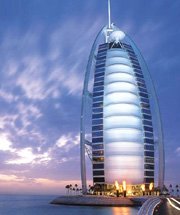
- Packages
- Destination
-
Attraction
By Category
Top Attraction

- Agents
- Car Rentals
- Hotels
Salvador de Bahia, commonly known as Salvador, is a vibrant city located on the northeastern coast of Brazil. It is the capital of the state of Bahia and is renowned for its rich cultural heritage, colonial architecture, and Afro-Brazilian traditions. Founded in 1549, Salvador was the first colonial capital of Brazil and remains a significant cultural hub in the country.
Salvador is well-connected both domestically and internationally. The main gateway to the city is the Deputado Luís Eduardo Magalhães International Airport (SSA), which offers flights to and from major cities in Brazil as well as international destinations. From the airport, visitors can take taxis, ride-sharing services, or airport shuttles to reach their accommodations.
For those traveling from within Brazil, Salvador is accessible by long-distance buses from various cities. The city's bus terminal is located near the city center, making it convenient for travelers to reach their destinations upon arrival.
Salvador enjoys a tropical climate with warm temperatures year-round. The average temperature ranges between 25°C (77°F) and 30°C (86°F). The rainy season typically occurs from April to July, while the dry season spans from August to March. Visitors can expect pleasant weather during the dry months, making it an ideal time to explore the city's outdoor attractions.
The best time to visit Salvador is during the dry season, from August to March. During this period, the city experiences less rainfall, and outdoor activities such as beach visits and city tours are more enjoyable. Additionally, the city's vibrant festivals, including the famous Carnival, take place during this time, offering visitors a chance to experience Salvador's lively cultural scene.
Salvador is famous for its unique blend of African, Portuguese, and indigenous cultures, which is reflected in its music, dance, cuisine, and religious practices. The city is known for its historic Pelourinho district, a UNESCO World Heritage site featuring colorful colonial buildings and cobblestone streets. Salvador is also the birthplace of samba and is renowned for its lively Carnival celebrations, which attract visitors from around the world.
Salvador is a welcoming city for tourists, with a range of accommodations to suit different budgets, from luxury hotels to guesthouses. Most attractions in the city are open to the public, and many offer guided tours to enhance the visitor experience. It's advisable to check the opening hours and any entry requirements of specific attractions before visiting.
Salvador's history is deeply intertwined with Brazil's colonial past. The city was founded in 1549 and served as the first capital of Brazil. Its architecture reflects this heritage, with well-preserved colonial buildings, churches, and forts. Notable architectural landmarks include the Cathedral Basilica of Salvador, an example of Portuguese Mannerist style, and the Church and Convent of São Francisco, renowned for its baroque design and ornate interiors.
Salvador de Bahia is a city that offers a unique blend of history, culture, and natural beauty. From its colonial architecture and vibrant festivals to its beautiful beaches and rich Afro-Brazilian traditions, Salvador provides a memorable experience for all who visit. Whether you're exploring the historic streets of Pelourinho, enjoying the lively atmosphere of Carnival, or relaxing on the beach, Salvador is sure to captivate and inspire.